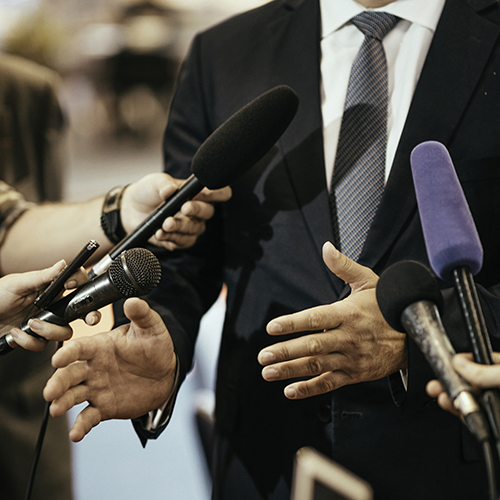01 May 2025

Politicians have a duty to move beyond tokenistic gestures and engage seriously with young people’s ideas and concerns.
As politicians continue the campaign trail with carefully scripted messages and media spin, researchers from the University of South Australia say young people are watching – and learning the wrong lessons about democracy.
With children and teens already engaging with political issues on social media, the election period is a critical opportunity to shape how they understand democratic participation.
The call follows recommendations from the Australian Parliament’s report for a nationally consistent approach to civics and citizenship in education, with a focus on digital literacy to help young people decipher misinformation through social media.
UniSA’s Associate Professor Joel Windle says politicians have a duty to move beyond tokenistic gestures and engage seriously with young people’s ideas, concerns and capacities for civic engagement.
“Australia’s democracy depends on citizens being informed and engaged, especially in a system of compulsory voting. Yet rising misinformation, disengagement, and distrust pose serious challenges,” Assoc Prof Joel Windle says.
“For young people and children, election campaigns present a master class in deflecting questions, talking to pre-set points, controlling and shutting down debates and, at all costs, avoiding controversy.
“So rather than arming voters and young people with valuable information upon which to base decisions, politicians are demonstrating the exact opposite.”
The researchers say that to engage young people and encourage children to grow into active, connected citizens, we need to model, not undermine, democratic values.
“Civics is also often under-prioritised, outdated, and disconnected from students’ lives, with many teachers lacking the confidence to address contemporary or controversial issues,” Assoc Prof Windle says.
“From our research, we know that upper-primary school children are more than capable of tackling complex social and political topics. And, with the right support, can investigate anything from local concerns such as unsafe streets, to global challenges like climate change.
“We also know that they are excellent producers of podcasts and digital content. Blend these together, and you get students who can research, reflect, and represent issues in balanced, thoughtful ways, while navigating and filtering digital content. That’s the essence of democratic citizenship.
“With the federal election highlighting the gap between political practice and civic ideals, it’s more urgent than ever to ensure young people learn that democracy is about dialogue, accountability and action – starting in the classroom.”
The UniSA team’s new book – Being Heard: Remixing Critical Literacy for Active Citizenship – offers practical, research-backed strategies for teachers to build student voice and agency in the primary classroom.
The research team includes: Assoc Prof Joel Windle, Assoc Prof David Caldwell, Assoc Prof Melanie Baak and Dr Aidan Windle.
…………………………………………………………………………………………………………………………
Contact for interview: Assoc Prof Joel Windle M: +61 414 577 454 E: Joel.Windle@unisa.edu.au
Media contact: Annabel Mansfield E: Annabel.Mansfield@unisa.edu.au




